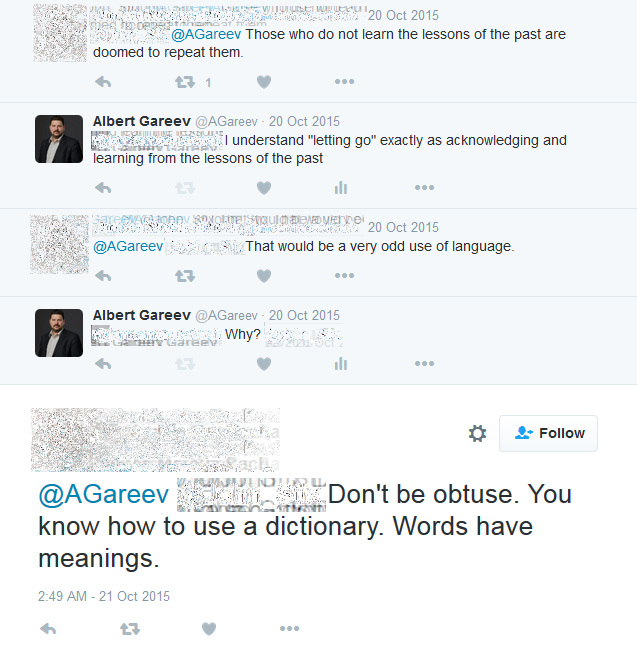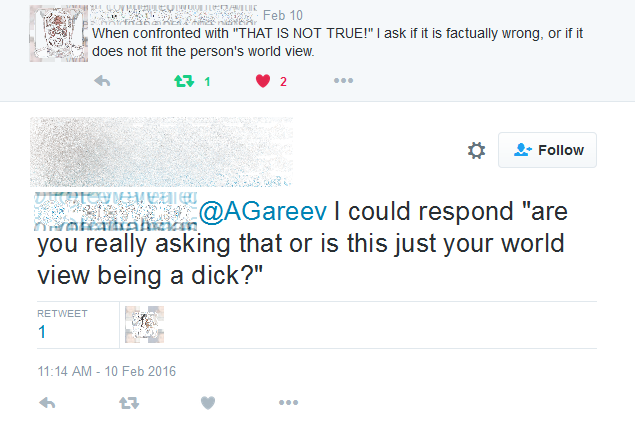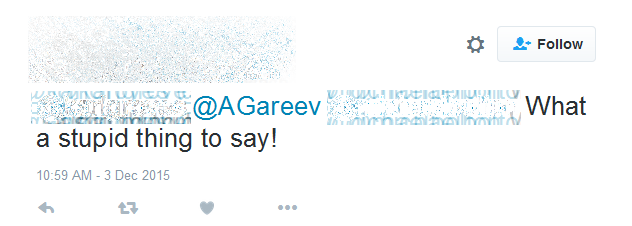On Bullying and Language Lessons
Learning lessons from bullying and trolling
Blogs, community sites, and Twitter opened wonderful opportunities to connect with people, to learn, to collaborate, and to express yourself. That last part may go wild though. For whatever the reason, bullies of all ages thrive online. Some are typical trolls, some behave like self-appointed judges. Some even have followers!
Picking up a fight is what they’re waiting for. Probably, not falling into that is the best approach.
But, sometimes, it’s very tempting (“Nobody — calls me — chicken.”).
But testing, among other things, taught me to act asymmetrically. Why don’t I draw lessons here? Why shouldn’t I be thankful for learning opportunities?
So here are my thanks and experience reports.
—
Notes.
Obviously, I’m unwilling to promote the bullies so I masked their names and Twitter IDs. Someone pointed that I should obfuscate everything because dates and exact sentences are still searchable. But I’m fine with people exploring, discovering, and making their own judgments.
I also don’t want to involve other participants without their consent, so I masked their names and Twitter handles.
—
Thank You for language lessons!
|
|
Once I retweeted a quote with an image of text.
“When you finally let go of the past something better comes along.” One of those self-appointed sheriffs decided to pick on that: “Those who do not learn the lessons of the past are doomed to repeat them.” I tried to explain myself: “I understand “letting go” exactly as acknowledging and learning from the lessons of the past.” And got the following judgment in response: “That would be a very odd use of language.” I asked: “Why?” “Don’t be obtuse.” – was the reply, – “You know how to use a dictionary. Words have meanings.” Why, yes, I had to look up “obtuse” in a dictionary. |
That was a good lesson in humility for me. Thanks!
I acknowledge being “slow” and “somewhat stupid” with English. All these 10 years after moving to Canada I have been learning the language. I read, and I practiced speaking and writing. I thought I was getting pretty good. That feedback gave me a new perspective, and I know that I shouldn’t slow down my efforts.
I also felt disgraced and discouraged.
Thank you for reinforcing the anti-pattern for me.
Whenever I give feedback, I strive to focus on the progress and improvement.
Now I have a personal experience of what I would have caused if I did otherwise.
—
Thank You for lessons in intercultural communication!
I report that the learning was two-fold for me. Thanks!
First of all, I admire how the author of the tweet simply let it go. They made their point. They experienced an attack. But they didn’t disrupt their flow by falling into an argument.
I’m still too tenacious. I’m yet to master the art of letting go. I felt a temptation to respond even though it wasn’t even me attacked.
Second, I learned an important perspective.
I need to be more attentive to how people perceive and process what was said. I should not solely rely on my own sense as an oracle.
They say “do to other people as you would want them do to you”. Well, it’s a heuristic.
With English being my non-native language I mostly have neutral perception of the words and expressions in it. For example, all these “A-word, B-word, C-word, D-word, E-word, F-word” and so on, – they don’t really resonate with me. But, say, if someone would address my guests in such way I’d see a problem and respond to it.
On the other hand, I would not rush to judge a non-native language speaker for their expressions because they may not realize that they’re causing a damage.
—
Thank You for lessons in debating!
|
|
So how these online arguments end up?
“What a stupid thing to say!” had an instant powerful effect. Just a few words completely changed the direction of the discussion. The person turned defensive. They also responded back with attacks of their own. The original theme was completely forgotten. |
“You can tell people they are wrong by a look or an intonation or a gesture just as eloquently as you can in words – and if you tell them they are wrong, do you make them want to agree with you?
Never!
For you have struck a direct blow at their intelligence, judgment, pride, and self-respect.
That will make them want to strike back. But it will never make them want to change their minds.”
~ Dale Carnegie, “How To Win Friends and Influence People“.
—
Could I have a better lesson?
The argument so strongly resonated with the involved people, they vented out to their own followers, and some joined the fight. They tweeted further rationalizing their views and resenting the personal attack.
People may not remember what we said or did but they strongly remember how they were made to feel by our actions and words. But digital world is different because it keeps stored all said and done. That’s especially true for recorded talks and videos.
—
So What?
I guess, any experience can be turned into lessons. But the problem remains.
Online bullying by isolated individuals is somewhat controllable. “Don’t feed the trolls” is a controversial but useful tactic.
It becomes worse with inspired and organized bullying, especially if the hatred spills from live to online, and back. Say, at a conference or a local event someone begins insulting a presenter or a participant. This would ruin the whole experience for many. I’ve read and heard of real occurrences of that. I heard people saying they won’t go to a particular conference. It’s a shame we have this within testing community.






